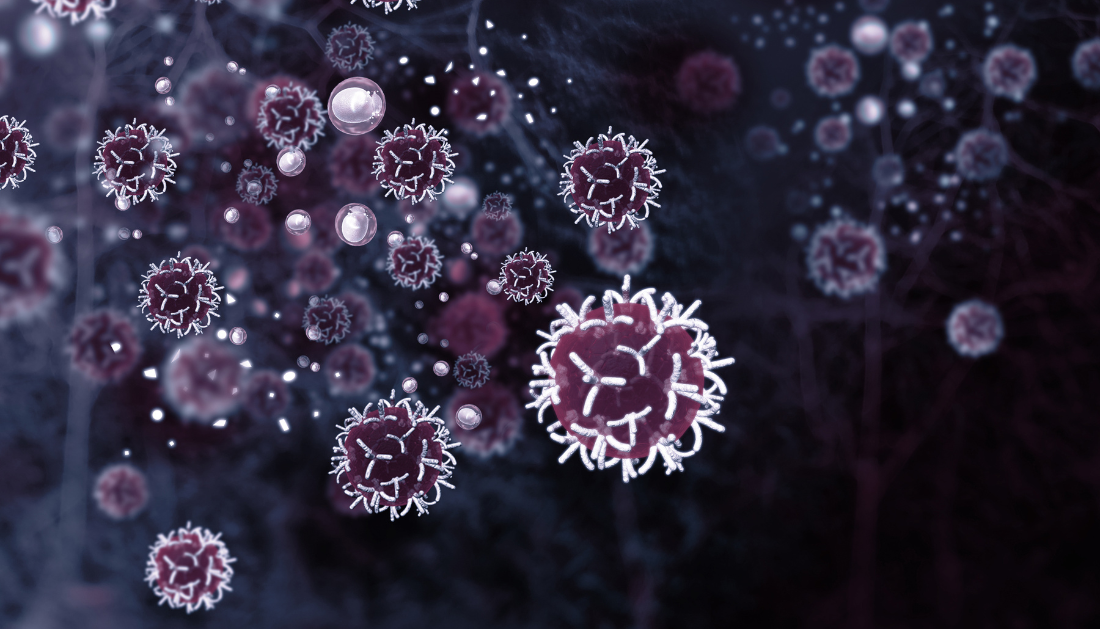

Nature-Inspired Nanoparticles Deliver Precision Chemotherapy
Researchers from the University of Colorado Boulder have introduced a groundbreaking platform that mimics gecko feet to adhere nanoparticles directly to tumor surfaces, enhancing the precision and duration of targeted chemotherapy. Drawing inspiration from the Van der Waals force, the same mechanism that allows geckos to cling to vertical surfaces, the team developed gecko-inspired nanoparticles designed to remain fixed at tumor sites, even in slippery environments like the bladder.
Explore All Oncology CME/CE Conferences
These soft dendritic particles, made using FDA-approved PLGA (poly lactic-co-glycolic acid), provide a biodegradable drug delivery system that slowly releases chemotherapy agents over several days. Early-stage trials in mice with bladder cancer show strong adhesion to tumor tissue, prolonged drug release, favorable immune response, and minimal toxicity. The technology may represent a significant step in improving localized cancer therapy, reducing the frequency of invasive treatments, and minimizing exposure of healthy tissue to cytotoxic agents.
Bladder Cancer and the Challenge of Intravesical Chemotherapy – Nanoparticles as Solution
Prolonged Drug Retention Could Reduce Recurrence and Side Effects
Bladder cancer treatment often involves intravesical chemotherapy, where drugs are delivered via catheter into the bladder. However, due to regular urination and the organ’s slippery lining, medications are frequently washed out within hours, necessitating repeated procedures and often leading to insufficient exposure of tumors to therapeutic concentrations.
The new nanostructured drug delivery solution counters this by adhering securely to tumor sites, mimicking the microscopic spatulae on gecko feet. This adhesion supports sustained drug release, reducing the number of treatments while maintaining therapeutic intensity. Beyond bladder tumors, the platform may prove valuable in treating other localized cancers, such as oral, head, and neck tumors.
“We’ve developed a practical, flexible platform for localized cancer therapy that could be easily scaled and translated.”
Jin Gyun Lee, first author
With a biocompatible nanoparticle model designed to disintegrate harmlessly after completing drug delivery, this approach reduces systemic exposure and holds promise for patient-friendly cancer management.
Translational Potential for Healthcare Providers
From Biomaterials to Bedside Oncology Innovation
For oncologists, oncology nurses, and drug delivery specialists, the gecko-inspired platform represents a shift toward cancer-targeted polymers designed with clinical scalability in mind. The potential to provide long-lasting, site-specific drug therapy while minimizing adverse effects could significantly improve the quality of care for patients with localized tumors.
This cross-disciplinary research, merging biomaterials science with clinical oncology, demonstrates how nature-inspired medical technology can inform practical innovations in cancer therapeutics. As further research progresses, these PLGA nanoparticles could play a role in reshaping how tumors are managed within organs that pose delivery challenges.
For More Information: Lee, J. G., et al. (2025). Soft Extrudable Dendritic Particles with Nanostructured Tendrils for Local Adhesion and Drug Release to Bladder Cancers. Advanced Materials. doi.org/10.1002/adma.202505231.
more recommended stories
 Sickle Cell Gene Therapy Access Expands Globally
Sickle Cell Gene Therapy Access Expands GloballyKey Summary Caring Cross and Boston.
 Reducing Alcohol Consumption Could Lower Cancer Deaths
Reducing Alcohol Consumption Could Lower Cancer DeathsKey Takeaways (At a Glance) Long-term.
 NeuroBridge AI Tool for Autism Communication Training
NeuroBridge AI Tool for Autism Communication TrainingKey Takeaways Tufts researchers developed NeuroBridge,.
 Population Genomic Screening for Early Disease Risk
Population Genomic Screening for Early Disease RiskKey Takeaways at a Glance Population.
 Type 2 Diabetes Risk Identified by Blood Metabolites
Type 2 Diabetes Risk Identified by Blood MetabolitesKey Takeaways (Quick Summary) Researchers identified.
 Microglia Neuroinflammation in Binge Drinking
Microglia Neuroinflammation in Binge DrinkingKey Takeaways (Quick Summary for HCPs).
 Precision Oncology with Personalized Cancer Drug Therapy
Precision Oncology with Personalized Cancer Drug TherapyKey Takeaways UC San Diego’s I-PREDICT.
 Iron Deficiency vs Iron Overload in Parkinson’s Disease
Iron Deficiency vs Iron Overload in Parkinson’s DiseaseKey Takeaways (Quick Summary for HCPs).
 Can Ketogenic Diets Help PCOS? Meta-Analysis Insights
Can Ketogenic Diets Help PCOS? Meta-Analysis InsightsKey Takeaways (Quick Summary) A Clinical.
 Silica Nanomatrix Boosts Dendritic Cell Cancer Therapy
Silica Nanomatrix Boosts Dendritic Cell Cancer TherapyKey Points Summary Researchers developed a.

Leave a Comment